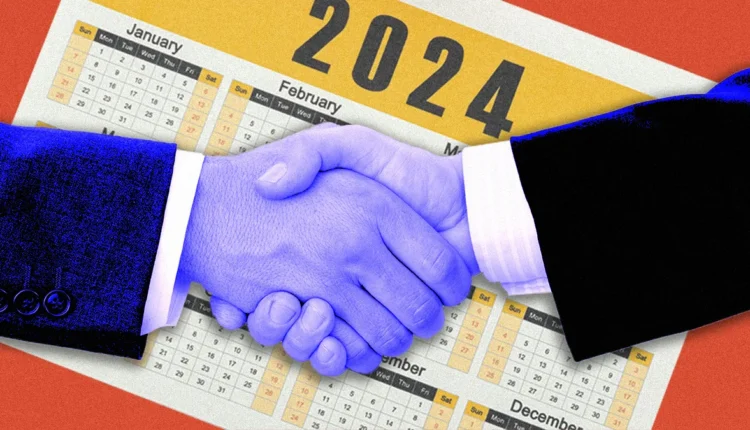The advertising technology (AdTech) industry has grown rapidly in recent years, driven by the increasing demand for innovative solutions to target, measure, and optimize digital advertising campaigns. As the digital landscape continues to evolve, mergers and acquisitions (M&As) in the AdTech sector have become a crucial part of the industry’s growth strategy. Companies are joining forces to expand their capabilities, enhance their product offerings, and stay competitive in an ever-changing market. In this article, we will explore the future of AdTech mergers and acquisitions and what it means for the industry.
What is AdTech?
Before diving into the future of M&As in AdTech, it’s important to understand what AdTech is. Advertising technology, or AdTech, refers to the tools and platforms used by marketers, advertisers, and publishers to manage and optimize their digital advertising efforts. This includes everything from programmatic advertising, data analytics, and demand-side platforms (DSPs) to content management systems and customer relationship management (CRM) tools.
The AdTech ecosystem is complex, with many players across various sectors, including analytics, targeting, measurement, and creative. As the digital advertising landscape grows, so does the need for more sophisticated technologies that can handle the demands of advertisers, brands, and consumers.
The Role of Mergers and Acquisitions in AdTech
Mergers and acquisitions have always played a critical role in the AdTech sector. As businesses look to stay competitive and expand their capabilities, acquiring or merging with another company allows them to rapidly enhance their technology stack, reach new markets, or gain access to valuable data and intellectual property.
In the past, M&As in AdTech were primarily driven by the need for growth and consolidation. Companies looked to acquire startups or smaller players that offered complementary technologies or specialized expertise. However, as the industry matures and becomes more complex, the reasons behind AdTech M&As are evolving.
Trends Shaping the Future of AdTech M&As
Several key trends are expected to shape the future of mergers and acquisitions in AdTech. These trends reflect the broader changes occurring in the digital advertising landscape and indicate where the industry is headed.
1. Consolidation of the AdTech Ecosystem
As the AdTech industry matures, there is a growing trend toward consolidation. Many smaller, niche players are being acquired by larger companies looking to integrate new technologies into their existing platforms. This consolidation is driven by the need for efficiency, as advertisers seek to streamline their technology stack and reduce complexity. By acquiring smaller companies, larger players can create more comprehensive solutions that address multiple aspects of the advertising process, from targeting and measurement to analytics and optimization.
2. Data and Privacy Concerns
Data privacy has become a significant concern in the digital advertising world, particularly with the introduction of regulations like the General Data Protection Regulation (GDPR) in the European Union and California’s Consumer Privacy Act (CCPA). As privacy concerns grow, AdTech companies are seeking to acquire technologies that enable them to navigate these regulations while still delivering effective advertising solutions.
In the future, M&As in AdTech will likely focus on acquiring companies with advanced data privacy solutions, secure data management platforms, and first-party data assets. Companies that can help advertisers collect, manage, and use data responsibly will be in high demand as privacy becomes a bigger issue.
3. Cross-Platform Integration
As advertisers increasingly focus on reaching consumers across multiple devices and platforms, the need for cross-platform integration is growing. AdTech companies that can provide solutions for advertising across mobile, desktop, TV, and even emerging platforms like connected TVs (CTV) and digital out-of-home (DOOH) media will be attractive targets for acquisition.
In the future, M&As will likely focus on companies that can enable seamless cross-platform advertising. This could involve acquiring companies with advanced data analytics, programmatic buying capabilities, or innovative solutions that help advertisers track and engage users across different environments.
4. Artificial Intelligence and Automation
Artificial intelligence (AI) and automation are transforming the management and optimization of digital advertising campaigns. With AI, advertisers can better predict consumer behavior, personalize messaging, and optimize ad spend in real time. Automation tools are also helping marketers save time and reduce human error by automating processes like bidding, targeting, and reporting.
In the future, we can expect a rise in M&As focused on AI and automation technologies. Companies offering advanced machine learning models, predictive analytics, and automated campaign optimization tools will highly seek attention. These technologies will allow companies to deliver more effective and efficient advertising solutions.
5. Integration with Media Companies
As the lines between AdTech and media companies continue to blur, we are likely to see more M&As between AdTech firms and media companies. The growing importance of first-party data is driving this trend, as media companies increasingly leverage it for more targeted advertising. By merging with or acquiring media companies, AdTech firms can access valuable first-party data and gain more control over the ad inventory they offer to clients.
In the future, these kinds of M&As will likely help AdTech companies expand their reach and improve their ability to deliver highly targeted, data-driven advertising solutions.
What Does the Future Hold for AdTech M&As?
The future of AdTech mergers and acquisitions looks promising, with opportunities for growth, innovation, as well as consolidation. As the digital advertising industry becomes more complex and data-driven, companies will further look for ways to expand their capabilities through strategic acquisitions.
The increasing importance of data privacy, cross-platform integration, artificial intelligence, as well as media partnerships will drive future M&A activity. Companies that can provide comprehensive, integrated solutions that address the full range of advertising needs will indeed be in high demand.
As we move forward, we can indeed expect more mergers and acquisitions that reshape the AdTech landscape. These changes will create new opportunities for both advertisers and technology providers. Companies that are able to stay ahead of these trends will be well-positioned for success. This will be crucial in the evolving world of digital advertising.
Conclusion

Mergers and acquisitions will indeed continue to play a pivotal role in the growth and transformation of the AdTech industry. Trends such as consolidation, data privacy concerns, cross-platform integration, AI, and media partnerships are likely to shape the future of AdTech M&As. As technology continues to evolve, the digital advertising landscape is growing even more complex. M&As will indeed remain a key strategy for companies seeking to stay competitive. They will also help meet the changing demands of advertisers.
Frequently Asked Questions on AdTech Mergers and Acquisitions (FAQs)
1. What are AdTech mergers and acquisitions?
AdTech mergers and acquisitions involve companies in the advertising technology sector merging or being acquired. These actions aim to enhance capabilities, reach, as well as innovation.
2. Why are mergers and acquisitions important in AdTech?
M&As help companies expand their product offerings and also streamline operations. They also enable companies to integrate new technologies and stay competitive in the evolving digital advertising landscape.
3. What trends are shaping the future of AdTech M&As?
Key trends include things such as data privacy concerns, cross-platform integration, and AI and automation advancements. Additionally, partnerships with media companies are being formed to leverage first-party data.
4. How will AI impact AdTech M&As in the future?
AI will drive M&As by enabling companies to acquire technologies that enhance data-driven decision-making, improve targeting, and also optimize ad campaigns.


